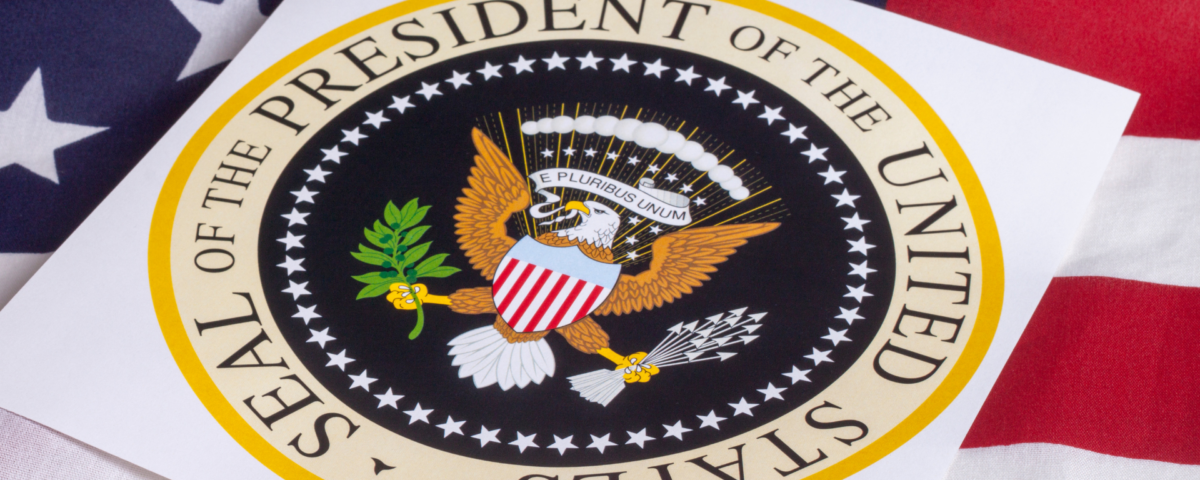
Presidential Get-Out-of-Jail-Free Cards: Is Nepotism Now Legal?
April 28, 2025
AI and Data Quality: Top Trends and Takeaways from IIeX 2025
May 5, 2025In part two of our series on presidential pardons, we take our exploration to a more holistic level and ask if the president’s pardon power can be reviewed or changed. In our recent wave of research-on-research, we had respondents answer using a five-point scale: strongly disagree, somewhat disagree, neutral/no strong opinion, somewhat agree, and strongly agree.
For analysis, we combined responses into Bottom 2 Box (B2B), which includes those who disagreed (strongly or somewhat), and Top 2 Box (T2B), which includes those who agreed (strongly or somewhat).
Overall
At the highest level, public opinion leans in favor of reform. Over half of all respondents (55%) agreed that the pardon power should be reviewed or changed (T2B), while just 10% opposed it (B2B). A significant portion—35%—were neutral or held no strong opinion, highlighting ongoing uncertainty around this presidential authority.
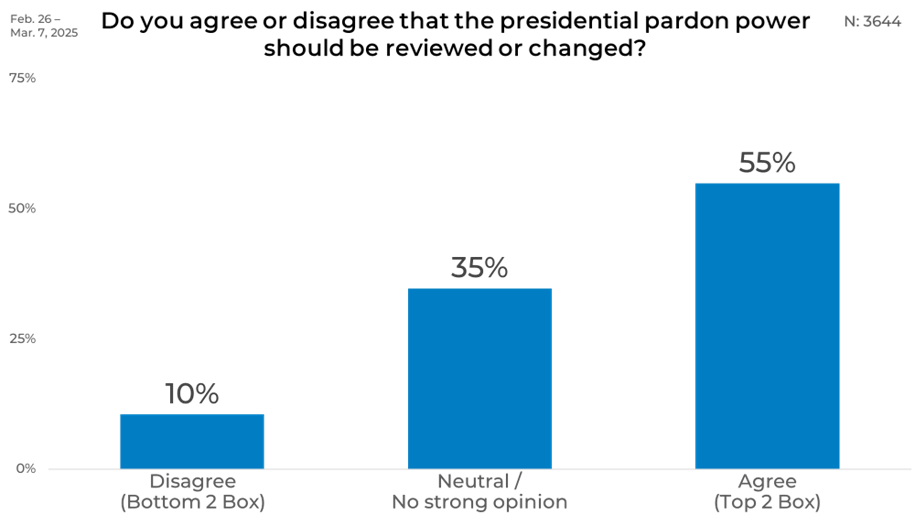
Gender
In a breakdown by gender, we found that men were slightly more likely to support change (57%) compared to women (53%), though opposition remained low for both. Neutral views were more common among women (38%) than men (31%), pointing to a modest gender gap in engagement with the issue.
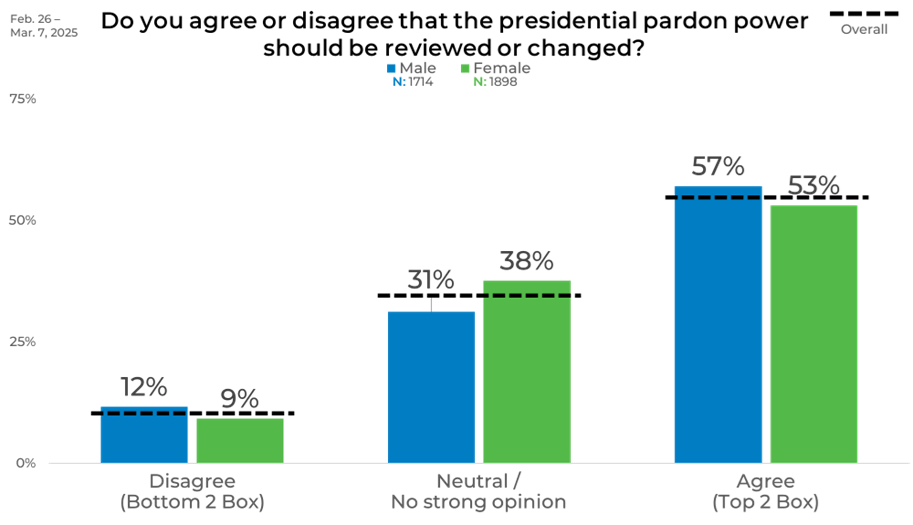
Age
We found that support for change grows steadily with age. Only 43% of 18-24-year-olds agreed with reform—the lowest support level across all age groups. Agreement increased slightly among 25-34-year-olds (46%) and continued to rise among 35-44-year-olds (52%). Individuals aged 45-64 showed even greater backing at 60%, and those 65 and older expressed the strongest support, with 69% favoring reviewing or changing the pardon power.
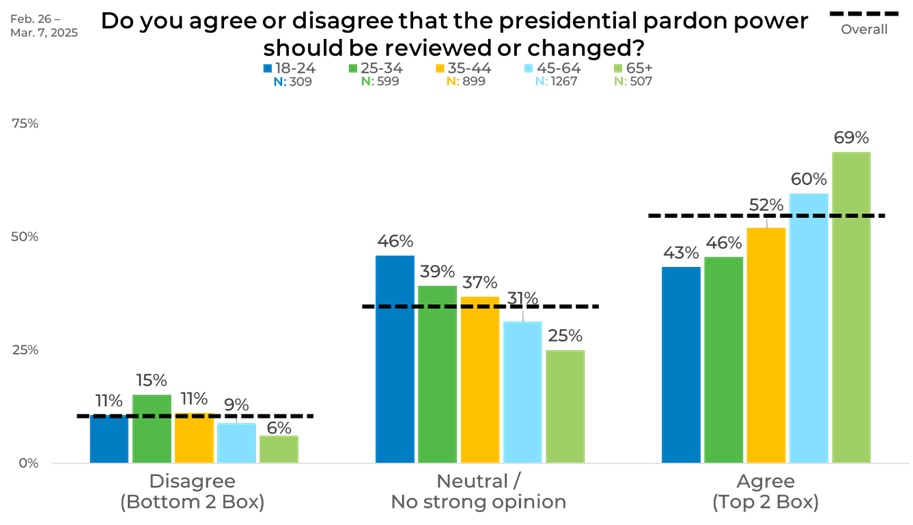
Income
The data by income level indicates a steady upward trend in support of change as income increases. Among those earning under $20,000, 42% favored reviewing or modifying the pardon power, with 45% remaining neutral—the highest neutrality rate of any income group. Support rose to 57% among those earning $20,000–$39,999 and remained strong in the middle-income brackets: 53% for $40,000–$59,999 and 60% for $60,000–$99,999. The highest level of agreement came from respondents earning $100,000 or more, where 63% supported changes to the pardon authority. As income increased, neutrality decreased, suggesting that higher earners may feel more confident or informed about their constitutional power stance.
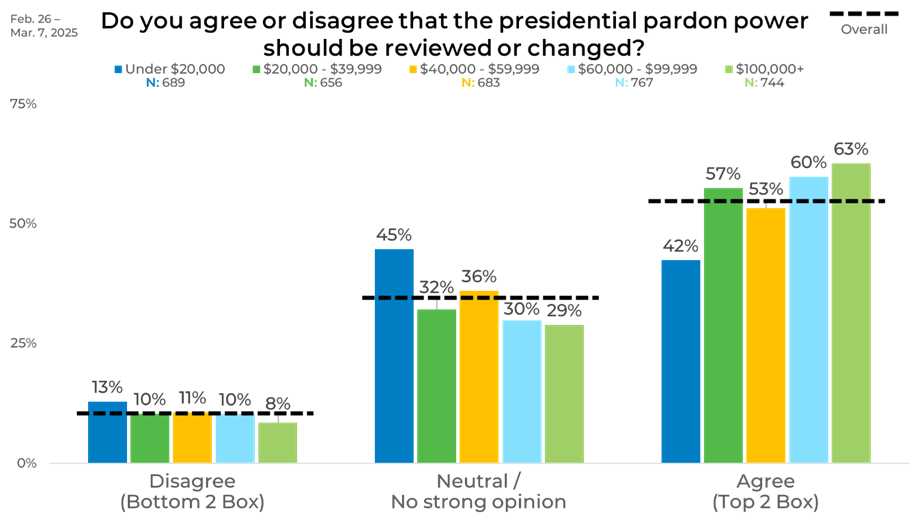
Political Affiliation
The political splits have similar results to what we saw with the data around issuing preemptive pardons for family members. Republicans expressed the strongest agreement with changing the pardon power (61% T2B), followed by Democrats (55%) and Independents (54%). While other political groups showed lower agreement levels but had the highest share of neutral responses, making them less central to broader partisan trends.
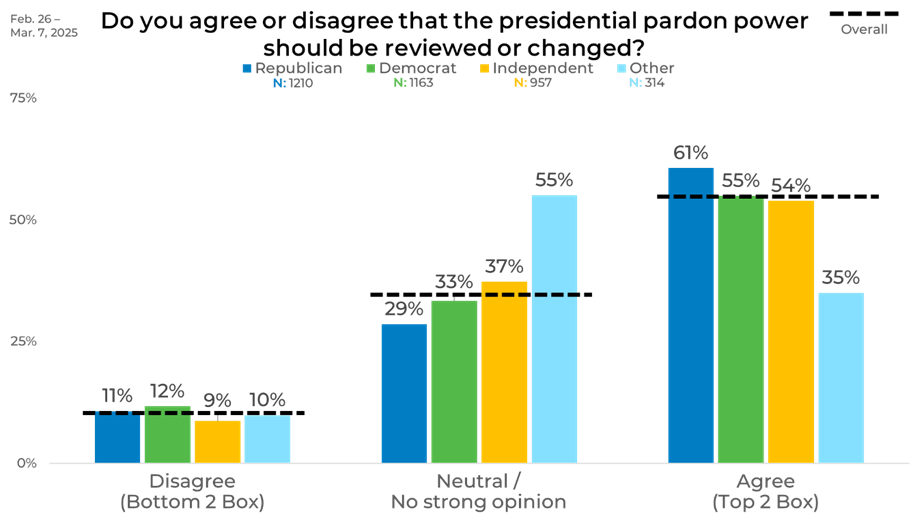
Ethnicity
When we examined the data by ethnic background, we found some differing views. Caucasian respondents were the most supportive (59% T2B), followed by Asian or South Asian participants (55%). African American and Hispanic/Latino respondents were less supportive (45% and 46%, respectively) and more likely to express neutrality. The “Other” group showed the highest combined rate of neutrality and disagreement.
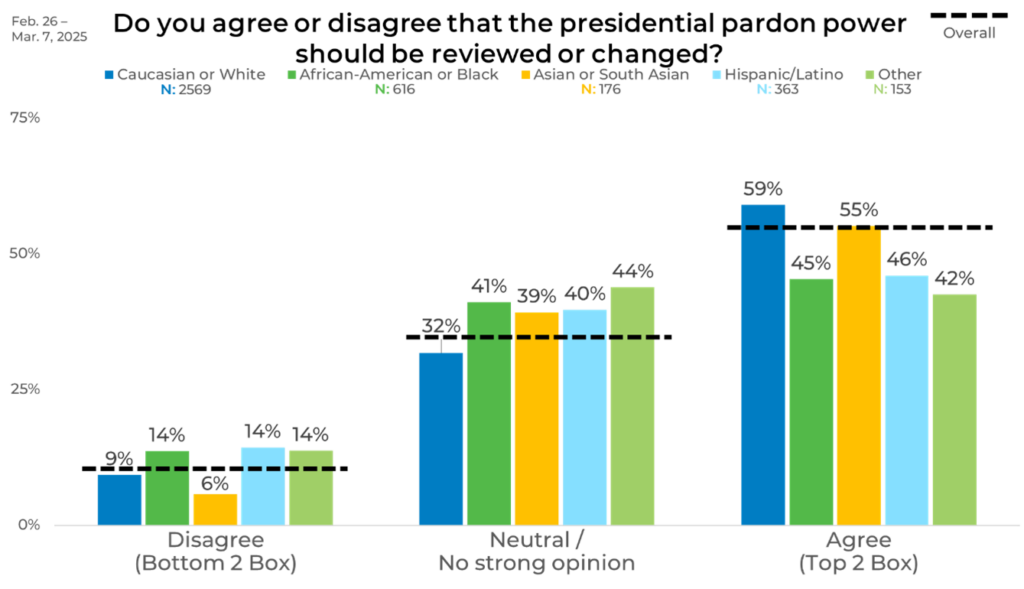
Panel
While overall support for reviewing the pardon power was strong, the panels varied in their levels of agreement. Panel J reported the highest level of support at 59%, closely followed by Panels L, F, and B, all clustered around 56% to 57%. In contrast, Panel P stood out with notably lower support at just 46%. This panel also had the highest rate of neutral responses at 42%, suggesting a greater level of indecision or ambivalence. These contrasts underscore how individual panels can produce different outlooks, reinforcing the importance of blending data across sources to capture a fuller picture of public sentiment.
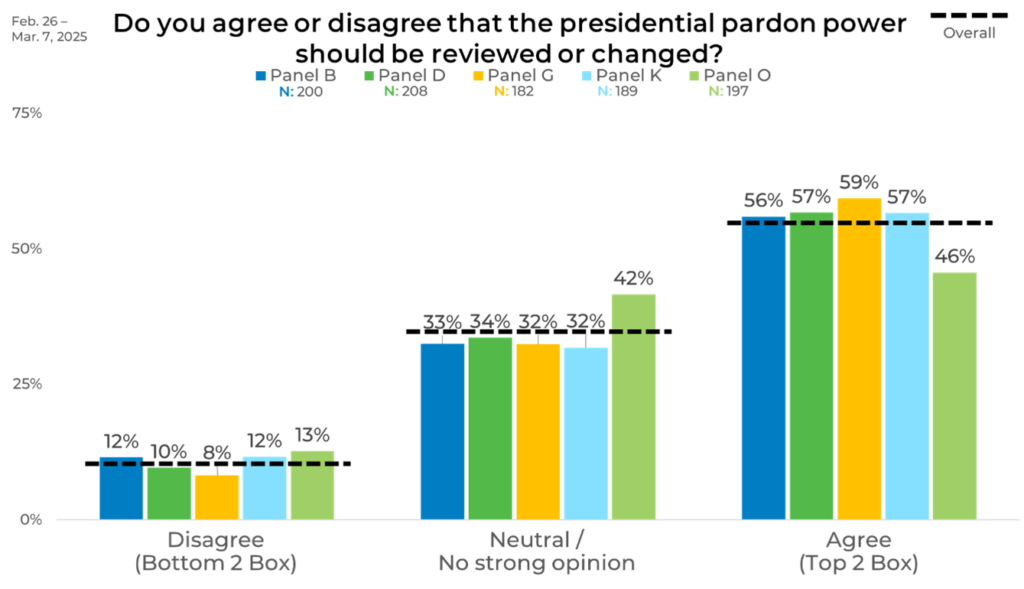
To best mitigate bias that can occur with panel selection, learn more about EMI’s strategic sample blending approach.

